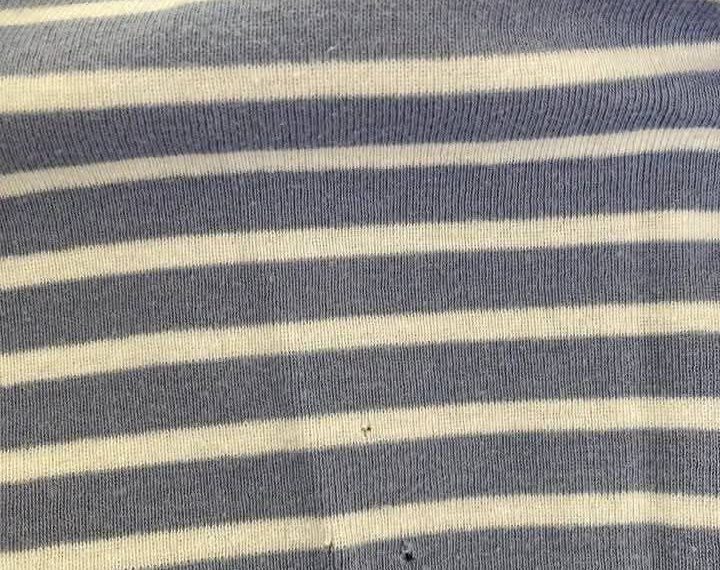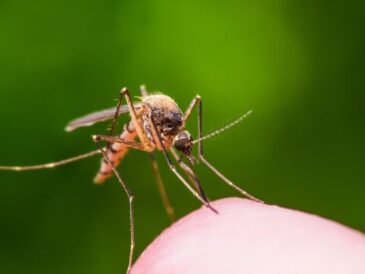Have you ever pulled out your favorite shirt, only to find mysterious little holes appearing out of nowhere? It’s frustrating, especially when you don’t wear belts, and you’re sure it’s not your washing machine causing the issue. So, what’s really behind these tiny holes? Let’s dive into the possible causes and how you can prevent them!
1. Friction from Everyday Surfaces
Even if you don’t wear belts, your clothes are constantly rubbing against hard surfaces. Some common culprits include:
- Kitchen countertops (especially if you lean while cooking )
- Desk edges (if you work at a desk daily )
- Seatbelt buckles (especially in high-waisted shirts )
- Drawers and cabinet handles (when reaching for something )
Over time, this repeated rubbing weakens the fabric, making it prone to holes. This is one of the most common reasons for those tiny holes appearing in the lower front of your shirts!
2. Low-Quality Fabric = Weak Threads
Not all fabrics are made to last! Many fast-fashion brands use thin, lightweight materials that break down easily after repeated washing and wearing. Common issues include:
Thin cotton blends that wear out faster
Synthetic fabrics with weak fibers
Cheaply-made t-shirts that stretch and tear easily
Tip: Opt for higher-quality fabrics like thick cotton, linen, or blends with reinforced fibers for long-lasting wear!
3. Fabric Pests: The Silent Destroyers
Tiny holes in clothing could be a sign of fabric-eating insects, such as:
Carpet beetle larvae – They love feasting on cotton, wool, and synthetic fibers.
Clothes moths – Their larvae chew through fabric, especially in dark, undisturbed closets.
How to Check for Pests:
Look for tiny, worm-like larvae or cocoons in your closet
Inspect fabric for multiple small holes in different areas
Wash affected clothing in hot water and vacuum your closet thoroughly
Tip: Store seasonal clothes in airtight bags and use natural repellents like cedarwood or lavender sachets!
4. Zippers, Buttons, and Hooks: Hidden Fabric Killers!
Even though you don’t notice it, your clothes rub against each other in the washing machine. Zippers, metal buttons, and hooks from jeans or jackets can snag delicate fabrics, leading to those small holes.
How to Prevent Damage:
Wash delicate clothing inside out
Use a mesh laundry bag for fragile fabrics
Separate heavy garments (like jeans) from soft ones
5. Washing Machine & Detergent Issues
Even if your washing machine isn’t the main culprit, it could still contribute! Harsh detergents and overloading your machine can weaken fabric fibers.
Laundry mistakes that weaken fabric:
Using too much detergent (it makes fibers brittle)
Overloading the machine (clothes rub too much)
Using high spin speeds on delicate fabrics
Tip: Use a gentle cycle, wash similar fabrics together, and consider a mild detergent!
6. Acidic Sweat, Perfumes, and Cleaning Products
Did you know that your sweat, perfumes, and even household cleaners can damage fabrics over time? Some shirts may develop holes in areas where sweat accumulates, especially around the chest or waist.
How to Reduce This Issue:
Wash sweaty clothes as soon as possible
Avoid using strong perfumes or deodorants directly on fabrics
Be mindful of cleaning products that might splash on clothes
How to Prevent These Annoying Tiny Holes!
Now that you know the possible causes, here’s how to stop these holes from appearing:
How to Prevent These Annoying Tiny Holes!
Avoid leaning against rough surfaces (especially countertops!)
Choose high-quality fabrics that don’t wear out quickly
Store clothes properly to prevent insect damage
Use laundry bags for delicate fabrics
Turn shirts inside out before washing
Be mindful of seatbelts, zippers, and metal accessories
Final Thoughts
Finding mysterious holes in your clothes is annoying, but by identifying the real cause, you can protect your favorite outfits and make them last longer!
Have you experienced this issue? What do you think is the biggest cause? Let us know in the comments!




